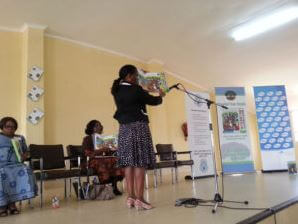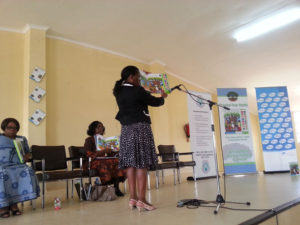Speaking Book launched targeting non-communicable diseases

Yesterday, the Department of Health launched the first-ever Speaking Book addressing the understanding and prevention of non-communicable diseases (NCDs) like cancer, diabetes and heart disease.

According to the World Health Organisation, about 25% of all deaths in South Africa are related to NCDs. Developed jointly by the International Council of Nurses (ICN), Pfizer and the South African Depression and Anxiety Group (SADAG), the Growing Your Health Speaking Book uses voice clips narrated by SA celebrity Lillian Dube to explain the importance of healthy eating, healthy living and tobacco abstinence in preventing NCDs. Particularly useful for low literacy audiences, the book is designed for use in rural and urban communities.
Dr Jack Watters, Pfizer’s Vice President for External Medical Affairs, said: “NCDs have been overshadowed by the focus on infectious diseases, but continuing to ignore this subject can result in a health catastrophe. These Speaking Books will help people take control of their health and simultaneously overcome the challenge of low literacy – just because someone cannot read, doesn’t mean they don’t deserve access to this vital information.”
The Growing Your Health book is part of a larger effort by ICN and Pfizer to support the nursing profession with knowledge and new tools to engage people in leading a healthier lifestyle. “We encourage nurses to use these books to empower not only themselves and their patients, but also their communities at large,” says Elizabeth Oywer of ICN. “Most importantly, we hope that this empowerment will result in behaviour change, which is a vital step in the fight against NCDs.”
A breast cancer survivor and diabetes sufferer, Dube urged the audience to pay closer attention to their health, as well as to begin changing behaviours that increase their risk of cancer, diabetes or heart disease, like smoking, eating unhealthily and avoiding exercise. “I am so excited about this book, as we are faced with a lot of illiteracy in this country. People don’t die just because of a disease, but largely because of a lack of knowledge – these diseases are preventable,” she concluded.
SA – the Good News
